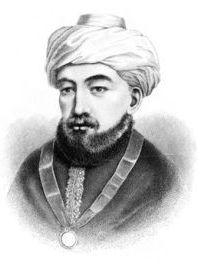
BOCA RATON, Florida — Some people think that Maimonides was a deist. I am convinced that they are mistaken. There are some similarities between Maimonides and deists, just as there are similarities between Jews and Christians, but these similarities do not result in us calling Jews Christians.
This becomes clear when we realize there were many different kinds of deists, and Maimonides agreed with some ideas of some deists but not entirely like any of them. He was an observant Jew who stressed the need for all people to use their intelligence. Like the Greek pagan philosopher Socrates (who died in 399 BCE), he recognized that the human mind could not understand many things, such as what God is. But this similarity to Socrates did not make Maimonides a pagan. He also agreed with the Athenian Aristotle that human intelligence distinguishes humans from plants and animals, but this similar thinking does not make Maimonides an Athenian.
In the October/November 2022 issue 152 of the monthly magazine “Philosophy Now, A Magazine of Ideas,” Professor Robert Griffiths wrote a four-page article about deism. In his opening paragraph, he defined deism as a “belief in the existence of a creator God who does not intervene in the universe, and in particular, in the lives of people.” Griffiths writes that this basic notion of deism that the existence of God can be proved rationally can no longer be sustained since the time of Darwin. Maimonides would agree with Griffiths, for Maimonides states we can know nothing about God. All that we can know is what we see, what was created. He refers us to Moses’ questioning about God in Exodus 33. Maimonides would concur with the deists that God does not intervene in the universe with miracles. Nor does God help people. Maimonides wrote that divine providence is the human intellect. It is the human mind that helps people. This is in The Guide of the Perplexed 3:17.
Later in the article, Griffiths states that the basic principle advocated by deists is that we should base all our beliefs on reason, an idea the deists borrowed from many philosophers, including Aristotle. Similarly, they took from Aristotle the philosophical idea that a person living a rational life would be happy and treat others equally. Maimonides also drew these ideas from Aristotle. The fact that Maimonides held the same view as deists on some topics but not others does not make him a deist.

Griffiths tells readers that there are hard and soft versions of deism. The hard version was developed in the 18th century by writers like Thomas Paine (1737-1809) and Voltaire (1694-1778). Hard-core deists are very critical of religion. They want “to break away from religious trappings such as scriptures and rituals” that they consider superstition.
Soft deism is “barely critical of religion.” It emerged in the 17th century in the works of John Toland (1670-1722) and Matthew Tindall (1657-1733), which one “might call ‘Christian deism.’ The general idea was that Christianity has a core that should be defended entirely by reason, and that was all that a Christian needed.” A good example is Thomas Jefferson (1743-1826), who edited the New Testament to delete items such as miracles which he felt were unreasonable. Leo Tolstoy (1828-1910) did the same thing to the New Testament, but he was not a deist, showing that one can have some ideas held by some deists without being a deist.
It should be obvious that the religious Jew Maimonides could not accept the hard version, which rejects religion and religious practices. He also could not accept the soft version that people should be Christians who interpret Christian teachings rationally. Maimonides did something similar. He accepted Judaism rationally, but he did so, as previously stated, because he agreed with Aristotle. Maimonides considered the reason the “image of God,” mentioned in Genesis 1:27, that the deity placed in humans.